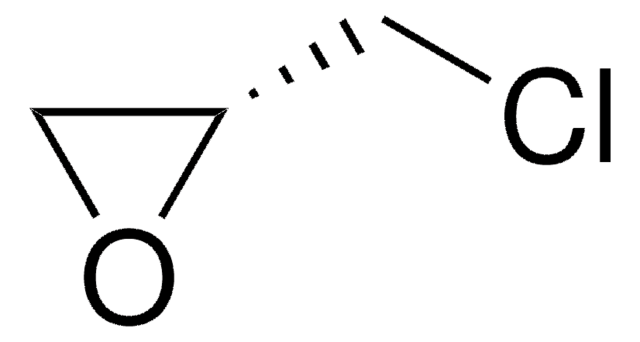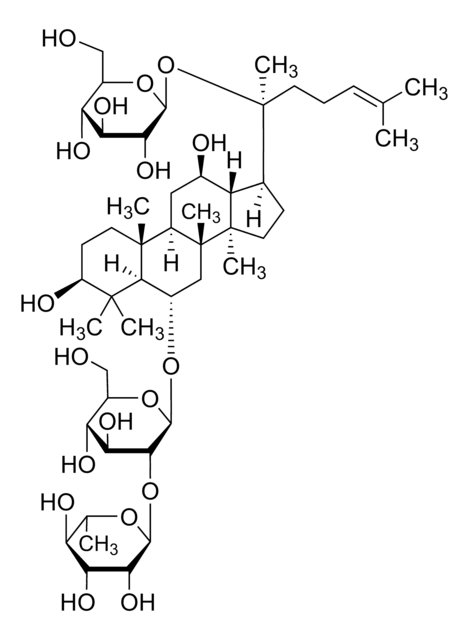02578
(±)-Epichlorohydrin
analytical standard
Sinónimos:
(±)-2-(Chloromethyl)oxirane, 1-Chloro-2,3-epoxypropane
About This Item
Productos recomendados
grade
analytical standard
Quality Level
vapor density
3.2 (vs air)
vapor pressure
13.8 mmHg ( 21.1 °C)
assay
≥99.9% (GC)
autoignition temp.
779 °F
shelf life
limited shelf life, expiry date on the label
expl. lim.
21 %
technique(s)
HPLC: suitable
gas chromatography (GC): suitable
refractive index
n20/D 1.438 (lit.)
n20/D 1.438
bp
115-117 °C (lit.)
mp
−57 °C (lit.)
density
1.183 g/mL at 25 °C (lit.)
application(s)
cleaning products
cosmetics
environmental
food and beverages
personal care
format
neat
SMILES string
ClCC1CO1
InChI
1S/C3H5ClO/c4-1-3-2-5-3/h3H,1-2H2
InChI key
BRLQWZUYTZBJKN-UHFFFAOYSA-N
¿Está buscando productos similares? Visita Guía de comparación de productos
General description
Application
It may be used as a reference standard for the analysis of (±)-ECH in drinking water by ion chromatography and in effluent water from wastewater treatment plants by HS-solid phase microextraction (HS-SPME) combined with GC-flame ionization detector (GC-FID) and GC-ECD.
signalword
Danger
Hazard Classifications
Acute Tox. 3 Dermal - Acute Tox. 3 Inhalation - Acute Tox. 3 Oral - Carc. 1B - Eye Dam. 1 - Flam. Liq. 3 - Repr. 2 - Skin Corr. 1B - Skin Sens. 1
Storage Class
3 - Flammable liquids
wgk_germany
WGK 3
flash_point_f
82.4 °F
flash_point_c
28 °C
ppe
Faceshields, Gloves, Goggles, type ABEK (EN14387) respirator filter
Choose from one of the most recent versions:
¿Ya tiene este producto?
Encuentre la documentación para los productos que ha comprado recientemente en la Biblioteca de documentos.
Los clientes también vieron
Nuestro equipo de científicos tiene experiencia en todas las áreas de investigación: Ciencias de la vida, Ciencia de los materiales, Síntesis química, Cromatografía, Analítica y muchas otras.
Póngase en contacto con el Servicio técnico














